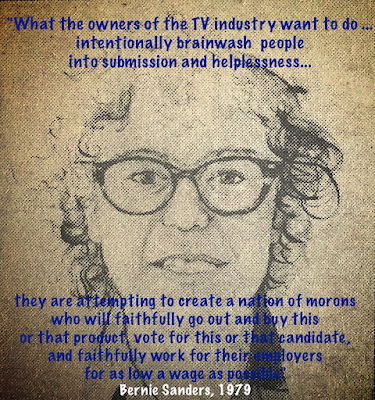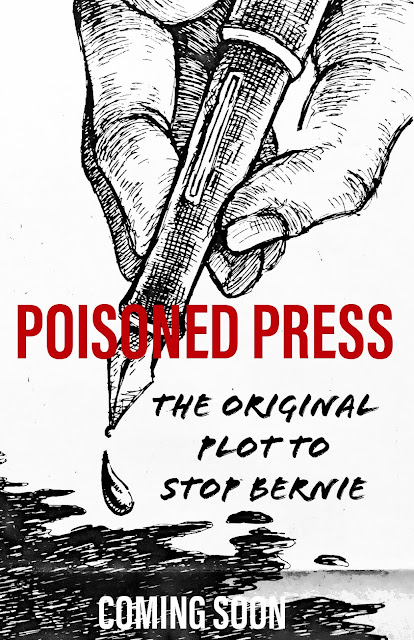 |
| My great uncle Lorenzo was still marching in 1964. |
The Romans may have been the earliest to exploit southern Italy, their behavior so brutal that it eventually sparked the revolt of Spartacus. But some believe the darkest period may be the 200-year rule of the Spanish dynasty, which subjected the Mezzogiorno to a long series of predatory barons and viceroys. Officially, the feudal era ended in 1806, but its passing also meant that peasants could no longer turn to a wealthy overlord for aid. Now they were on their own.
Over the next decades, absentee landlords gained in influence, permiting gross inequities and draconian contracts that exploited most peasants. Some became outlaws and thieves. As a result, when southerners resisted landlord abuse or complained to the central government, they were often called barbarians and savages. But artisans and storekeepers were respected across class lines. Each trade had its own mastri and apprentices. They were more likely to take advantage of educational opportunities, and also among the first to join the exodus to America.
Over the next decades, absentee landlords gained in influence, permiting gross inequities and draconian contracts that exploited most peasants. Some became outlaws and thieves. As a result, when southerners resisted landlord abuse or complained to the central government, they were often called barbarians and savages. But artisans and storekeepers were respected across class lines. Each trade had its own mastri and apprentices. They were more likely to take advantage of educational opportunities, and also among the first to join the exodus to America.
Listen to "Bruno and Lorenzo: Two Italian Stories" on Spreaker.
Born on April 17, 1891 in the small Calabrian mountain town of Parenti, Bruno Lupia was the oldest of three brothers and, in 1902, the first on my mother’s side of the family to emigrate to the United States. His parents, Michelina Cardamone and Joseph Lupia, had three other children: Lorenzo, Luciano, and Rosa. Lorenzo came to the US a decade later as a teenager, possibly to apprentice with his brother. Luciano followed in 1921. Both of them returned to Italy, however. According to my mother, the former “got into trouble” for his politics and the latter failed in a restaurant business.
There was obviously much more to this story. After all, grandpa Bruno became a clothing manufacturer and philanthropist, influential enough to merit an audience with President Truman. And Lorenzo ultimately became mayor of his hometown. Not bad for a troublemaker.
 |
| Young Lorenzo |
Born on April 17, 1891 in the small Calabrian mountain town of Parenti, Bruno Lupia was the oldest of three brothers and, in 1902, the first on my mother’s side of the family to emigrate to the United States. His parents, Michelina Cardamone and Joseph Lupia, had three other children: Lorenzo, Luciano, and Rosa. Lorenzo came to the US a decade later as a teenager, possibly to apprentice with his brother. Luciano followed in 1921. Both of them returned to Italy, however. According to my mother, the former “got into trouble” for his politics and the latter failed in a restaurant business.
There was obviously much more to this story. After all, grandpa Bruno became a clothing manufacturer and philanthropist, influential enough to merit an audience with President Truman. And Lorenzo ultimately became mayor of his hometown. Not bad for a troublemaker.
By 1911, I learned, Bruno had launched himself as a tailor in Red Bank, New Jersey, established enough that the local newspaper reported a case in which he had a customer arrested and brought to court for trying to avoid a bill by skipping town. At the time Red Bank was a commercial and manufacturing center, with the emphasis on textiles, tanning, furs, and other goods destined for sale in Manhattan. It was also a port from which steamboats took commuters to work in Manhattan.
Bruno eventually moved his business to Manhattan and his growing family to Queens. As a clothing designer and manufacturer, he launched Metro Coat & Suit in the city’s garment district and became a leading Italian philanthropist, co-founder of the Italian Charities.
But by then a serious split had opened up with his brothers, apparently over politics and property. For years, as Bruno became established as a tailor and maker of women's clothes, he sent money home. At least once, in the early 1930s, he brought his family to Cosenza. After that, mostly silence.
 |
In September 1946, Bruno (on the right) led a delegation of Italian businessmen to meet with President Truman. They were disturbed at "the way things were going in the world," according to a report, and might not support Senator James Mead, the Democrat running for Governor of New York. His opponent was Thomas Dewey, the Republican incumbent. Dewey was re-elected and Bruno became a Republican.
Two years later Dewey almost defeated Truman for President.
|
As a child I was told almost nothing about relations across the ocean. But a recently found Italian cousin says that Bruno once sent Lorenzo a bust of Mussolini -- not a friendly gesture. And Luciano may have become an outright fascist. On the other hand, my mother lamented years later that no one from Italy bothered to reach out after Bruno sold (or surrendered) his family land rights.
Whatever the reasons, the evidence suggests that Lorenzo returned to Calabria by 1919, early enough to fight for Italy in World War I. After the war, he became a hard-line Socialist, a “maximalist” who advocated real social revolution. Evidently, he had picked up some radical ideas as a teenager in New York's immigrant circles, possibly by frequenting anarchist meetings.
From 1918 to 1920, Italy experienced serious monetary devaluation, along with so many strikes and factory occupations that the period became known as the "red biennium." In the little-industrialized south, the struggle played out on farmland. Soldiers returning from the war were in urgent need of work. But having encountered other peoples, ideas and cultures during the war, the former fighters wanted to finally leave behind the primitive social relations and working conditions of the middle ages.
In the spring of 1921, with the help of Lorenzo — recently back from America and the war — a group of returned soldiers founded the Agricultural Cooperative for Liberty, Mutual Aid and Work. It was a cooperaive society along the lines of one that had existed in Parenti back in 1909. The 1920s reincarnation was called the Anonymous Agricultural Cooperative of Parenti. During the fascist period it disbanded. When it was finally reactivated in 1943, the organization was renamed again, this time as the Agricultural Cooperative for Liberty and Work.
In the spring of 1921, with the help of Lorenzo — recently back from America and the war — a group of returned soldiers founded the Agricultural Cooperative for Liberty, Mutual Aid and Work. It was a cooperaive society along the lines of one that had existed in Parenti back in 1909. The 1920s reincarnation was called the Anonymous Agricultural Cooperative of Parenti. During the fascist period it disbanded. When it was finally reactivated in 1943, the organization was renamed again, this time as the Agricultural Cooperative for Liberty and Work.
Twenty years earlier, back in 1923, Lorenzo had already become concerned about political faddism and the rise of fascism. “People wake up anarchist in the morning, have a stroll, and become socialist,” he lamented in one article, “at noon comes De Cardona (a political priest), and we all are Popular; in the afternoon, after some drinks, from populist to ’Democratic-Liberal,’ then’fighters’; at night we all dress in black shirts and we are fascist. Without ceremonies!”
Three years after writing that, following a “summary” trial in November 1926, Lorenzo was “confined” to internal exile. His crime: As secretary of a “dissolved” section of the Socialist Party, he had conducted “active propaganda” throughout the district of Rogliano, defending peasants and challenging fascists. In other words, he was an organizer.
He was also part of the early anti-fascist resistance, and a new decree on public safety, following several attempts to assassinate Mussolini, had increased surveillance, clamped down on dissent, and established a system of “forced residence” (confino).
He was also part of the early anti-fascist resistance, and a new decree on public safety, following several attempts to assassinate Mussolini, had increased surveillance, clamped down on dissent, and established a system of “forced residence” (confino).
Once his appeal was dismissed, Lorenzo was sent to Lipari, an island where local pigs cleaned up rubbish in the streets and some locals viewed the political prisoners sent there as a pampered “species of nabob.” On the other hand, he met left-wing leaders like Carlo Rosselli and Emilio Lussu, democratic organizers and returned soldiers, and Francesco Fausto Nitti, nephew of the deposed prime minister.
When Lorenzo returned from exile, rather than being intimidated by his time in prison, he continued the struggle for social justice and freedom that characterized his life so far. As head of the local peasants and laborers organization, he helped to liberate land from the remaining baronies and fought phony “agrarian reform” that was being used against peasants and in favor of landowners. He “actively fought fascism with all his might and with the means at his disposal,” one local history noted.
In 1943 Lorenzo became a Parenti Commissioner. A year later, after the complete liberation of southern Italy, May 1 was celebrated in a special way. The Socialist Word had resumed publication and commemorated the event by printing an article by Lorenzo that reminisced about a past May Day, when he was exiled on Lipari in 1927.
In “Memories of May Day,” he recalled that “the rugged cliffs of the island were invaded around two in the afternoon by men who emerged from all directions. A group of white boulders that looked like a big boulder held us all on the part that was looking at the sea. We were about three hundred.
“Above, the anarchist group. On the summit, Robiati stood guard, gazing, to the streets with ready access to sound the alarm. Under him Mazzoni, Malara and those of one unidentified wag. More to the right a large group of communists. I remember the manly figure of Volpi, and the children's faces of Repossi and Piccelli.
“To the left were the socialists, the most numerous. Here Tega, Busoni, Carini, Innamorati, Tramontana, Grave, Germiniani and many, many others. There were then, alone, some Republicans, Mazzini, Mitti, Bruno. The lookout gave the signal to start because no one else would come and the celebration of our May Day began.
“What was said? I do not know. I do not remember. I look into the distance towards the coast of Sicily and think about those I had seen every morning, starting handcuffed between two policemen, called by the special court, in response to unimaginable and obscure crimes. I feel that although we do not agree on many things, we are all united by a single hope. ‘Down with Fascism!’ I cry out, and all we repeat it forcefully, and the cry echoes through the reef.
“When, one by one, we walk in single file, silent, toward the town, I seem to see an endless procession marching purposefully toward an achievement and a hymn that opens the door of my heart. Forward, forward Comrades!”
In the first free elections after the fall of the fascist regime, uncle Lorenzo was elected Mayor of Parenti in 1945. He held the position for the next thirty years, supervising community affairs with rigor, prudence and democratic principles.





